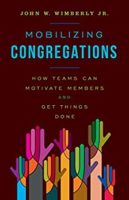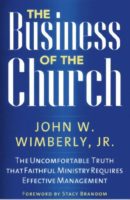Hiring great people with excellent skills is a first step toward building a cohesive, high-performing staff. Retaining those outstanding people is just as important—indeed, may be even more important in today’s competitive job market.
When I was in seminary, my father, a long-time pastor, started to impart his wisdom: “If you have a great janitor or secretary, do whatever is necessary to keep them on the staff. Give them a higher salary, more days off, better working conditions—whatever it takes!” Once out of seminary, I learned the wisdom of his advice.
How to Retain Staff
Anyone who has tried to hire an administrative assistant or facilities person knows that many candidates look and sound good. However, only some turn out to be good. On the job, all the flaws that were covered over in the hiring process are exposed—sometimes slowly, sometimes immediately. It then becomes necessary to let the person go—and start the risky, time-consuming hiring process all over again.
The same is true for other staff. Great associate pastors, youth ministry specialists, communications staff, education and spiritual formation specialists, and church administrators are all difficult to find and to retain.
So when we’re fortunate enough to hire the right person, we should do everything we can to retain them. Why venture back into the perilous waters of hiring when we can retain the gems already present on the staff?
Daniel Pink’s excellent book Drive: The Surprising Truth about What Motivates Us is a must read for anyone managing people. He lists three key things 21st century employees demand from workplaces: autonomy, mastery and purpose. When these three are present, the chance that an employee will stick around long-term increases exponentially.
Doing It My Way
Autonomy for staff members is crucial. If we want to retain talented staffers, the days of micromanaging are over. They probably ended decades ago, but they are really done now. The Millennial and GenZ generations (52% of the US population) will leave a workplace where they have no autonomy. By autonomy, I mean giving an employee a very clear picture of what you want them to do and then letting them do it the way they deem best.
Time and again, I encounter heads of staff who hover over staff members the way a parent hovers over a first-born infant. But employees are not children. They are, hopefully, skillful workers who need to be trusted to handle freedom. If we can’t trust those we hire, then we should either not be managers or we have hired untrustworthy people.
In conversations, too many heads of staff ask, “If I give them freedom, how do I know they’ll do it the way I want?” You won’t! The only thing you’ll know for sure is that either 1) the output will be what you want or 2) you’ll have to have a conversation about why things didn’t turn out as expected. Of course, one reason it might not have turned out as expected is because the employee autonomously figured out a better outcome than the one you envisioned!
Almost forty years ago, a friend of mine worked for a pastor who often came in to suggest minor changes: “Maybe you should use Calibri rather than Times New Roman.” “Maybe you should print this out on different paper.” The comments were irritating precisely because they were so minor. My friend didn’t quit—but a talented 30-year-old today probably would.
Doing it Well
For me, Daniel Pink’s most fascinating discussion is about mastery. He postulates that every employee wants to master the job—if not, they shouldn’t have been hired in the first place. My experience tells me Pink is right on.
I had a facilities person who loved improving his skills. For decades prior to my arrival, he had been given the only bare minimum tools and supplies required to do his job. In part to win him over, I started allowing him to buy what he needed. When the trustees told him he could buy a new snowblower, he started to pray for snow! He was excited because he could do his job better. He was taking his mastery of the job to a new level.
Mastery often involves education. Why do we have a continuing education allowance for pastors but not for administrative assistants? As a consultant, I interview staff members, and many complain that are not adequately trained on the new software systems they are expected to use. Money and time so that employees can improve their skill leads to high job satisfaction. It can be the determining factor in a staff person’s decision to stick with us rather than look for another job.
Doing It for a Reason
Congregations are created and exist for a purpose. Do we explicitly, unambiguously link the work of our staff members to the higher purpose of our congregation? Do we tell them how their work leads to better pastoral care for members, increased attendance at worship, greater mission involvement in the community? Too often, we miss the opportunity to make the link between the employee’s work and the congregation’s purpose.
An administrative assistant told me, “I was told that one of our congregation’s goals is to be welcoming. I see that as a major part of my job. I welcome homeless people at the door, brides and grooms getting ready for a wedding, neighbors who want to use our parking lot for a large family gathering and so much more. I love that my work has that much purpose and impact.” Somebody took the opportunity to connect her work with the purpose of the congregation.
For employers, today’s job market is as competitive as at any time in my ministry. Retaining high-quality staff members should be at the top of a congregation’s priorities. When we lose a high-quality person, we not only have to replace them, we must do so in fierce competition with other congregations and employers seeking the services of the same candidates. May we learn from authors like Daniel Pink how to build staff teams that not only excel but excel together for a long time.
John Wimberly is an experienced pastor and consultant. As a consultant, he has worked with congregations and judicatories on strategic planning, staff designs for the 21st century, and congregational growth as well as financial and administrative management. He has MBA, MDiv, and PhD (theology) degrees. His books focus on effective management and leadership. John believes congregations can have a bright future!




